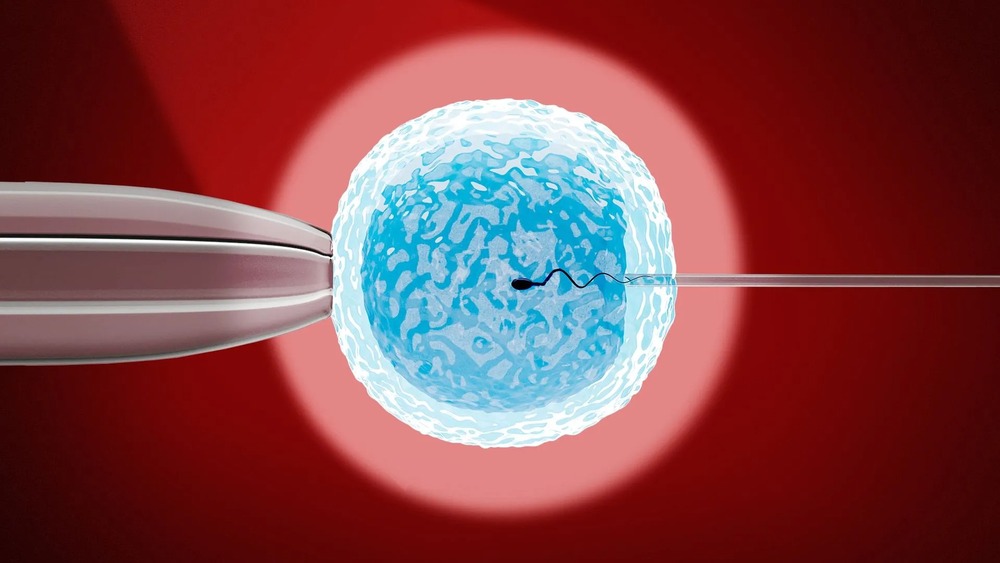In recent years, the landscape of fertility treatments has evolved dramatically, especially for women over 40. With advancements in technology and a deeper understanding of reproductive health, the chances of conceiving through in vitro fertilization (IVF) have significantly improved. This blog explores the latest innovations in IVF, the statistics surrounding older women seeking pregnancy, and how these developments are reshaping the journey to motherhood.

The Growing Trend of IVF Among Older Women
As societal norms shift and more women prioritize their careers and personal lives, the age at which they choose to start a family has also changed. According to the Centers for Disease Control and Prevention (CDC), the percentage of women aged 40 and older giving birth has increased by 50% over the last two decades. In 2020, approximately 10% of all births in the United States were to women aged 40 and older. This trend highlights the need for effective fertility solutions tailored to older women.
Age and Fertility: The Statistics
Understanding the impact of age on fertility is crucial. Here's a breakdown of the success rates of IVF based on age:
| Age Group | IVF Success Rate (%) | Average Number of Cycles Needed |
|---|---|---|
| Under 35 | 40% | 1-2 |
| 35-37 | 30% | 2-3 |
| 38-40 | 20% | 3-4 |
| 41-42 | 10% | 4-5 |
| 43+ | 5% | 5-6 |
Source: CDC, 2020
As shown in the table, the success rates of IVF decline with age, but advancements in technology are helping to bridge this gap.
Innovations in IVF Technology
Recent technological advancements have made it possible for older women to have a better chance of conceiving. Here are some of the most promising innovations:
-
Preimplantation Genetic Testing (PGT): This technique allows doctors to screen embryos for genetic abnormalities before implantation. By selecting the healthiest embryos, the chances of a successful pregnancy increase significantly. Studies show that PGT can improve IVF success rates by up to 30% for women over 40.
-
Egg Freezing: Women can now choose to freeze their eggs at a younger age, preserving their fertility for later use. This option has become increasingly popular, with a 20% increase in egg freezing procedures reported in the last five years.
-
Improved Culture Media: The development of advanced culture media has enhanced embryo development. These media provide the necessary nutrients and environment for embryos to thrive, leading to higher implantation rates.
-
Artificial Intelligence (AI): AI is revolutionizing the IVF process by analyzing embryo images and predicting which embryos are most likely to succeed. This technology can increase the chances of a successful pregnancy by up to 15%.
The Emotional and Financial Aspects of IVF
While the advancements in IVF technology are promising, the emotional and financial burdens of fertility treatments can be significant. The average cost of a single IVF cycle in the U.S. ranges from $12,000 to $15,000, and many women require multiple cycles to achieve pregnancy.
Financial Breakdown of IVF Costs
| Expense Category | Average Cost ($) |
|---|---|
| Initial Consultation | 200 |
| Medications | 3,000 |
| Monitoring & Testing | 1,500 |
| IVF Procedure | 12,000 |
| Embryo Freezing (if needed) | 1,000 |
| Total Average Cost | 18,700 |
Source: American Society for Reproductive Medicine
Despite the high costs, many women find the investment worthwhile. The emotional journey of IVF can be challenging, but support groups and counseling services are available to help navigate the ups and downs of the process. Websites like Resolve offer resources and community support for those undergoing fertility treatments.
Success Stories and Hope
Many women over 40 have successfully conceived through IVF, sharing their stories to inspire others. For instance, a recent study highlighted that women aged 40-44 who underwent IVF with their own eggs had a 10% chance of success, while those using donor eggs had a success rate of 50%. This stark difference emphasizes the importance of personalized treatment plans.
Conclusion
The journey to motherhood after 40 may come with its challenges, but advancements in IVF technology are providing hope and opportunities for many women. With a combination of innovative techniques, supportive resources, and a growing community, older women can embrace the possibility of pregnancy with renewed optimism.
As we continue to witness advancements in reproductive technology, the future looks bright for women seeking to start or expand their families later in life. If you're considering IVF, it's essential to consult with a fertility specialist to explore your options and find the best path for your unique situation. Remember, you are not alone on this journey! 🌈✨
For more information on IVF and fertility treatments, check out the American Society for Reproductive Medicine and Resolve for valuable resources and support.




